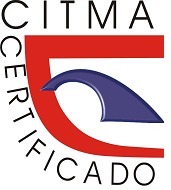Multi-agent system for the personalization of hotel attention through SMART TV
Keywords:
hospitality; big data; data mining; multi-agent systems; smart TVAbstract
Hotel management generates a large volume of data that is collected from different computer systems network connected . Updated literature show smart TV (iTV) as the most appropriate device to show personalized and interactive information to customers and register their prefered actions, products and services. Application of data mining techniques allow to manage large volumes of data and helps to predict the behavior of customers, support market analysis and create strategies based on trend analysis. Current literature responds to data processing of a single hotel, which limits decision making by not taking into account the mobility of customers and the integration of information from a hotel chain. In this paper, a new multi-agent approach is presented to achieve personalized hotel attention taking into account the integration of the data obtained through IT devices (specifically the iTV) belonging to a hotel chain.
References
Abbasi-Moud, Z., Vahdat-Nejad, H., & Sadri, J. (2021). Tourism recommendation system based on semantic clustering and sentiment analysis. Expert Systems with Applications, 167, 114324.
Al-Fararni, K., Nafis, F., Aghoutane, B., Yahyaouy, A., Riffi, J., & Sabri, A. (2021). Hybrid recommender system for tourism based on big data and AI: A conceptual framework. Big Data Mining and Analytics, 4(1), 47-55.
Anyfantis, N., Kalligiannakis, E., Tsiolkas, A., Leonidis, A., Korozi, M., Lilitsis, P. & Stephanidis, C. (2018, June). AmITV: Enhancing the Role of TV in Ambient Intelligence Environments. In Proceedings of the 11th PErvasive Technologies Related to Assistive Environments Conference (pp. 507-514).
Baert, Q., Caron, A. C., Morge, M., Routier, J. C., & Stathis, K. (2021). An adaptive multi-agent system for task reallocation in a MapReduce job. Journal of Parallel and Distributed Computing, 153, 75-88.
Buhalis, D., & Leung, R. (2018). Smart hospitality—Interconnectivity and interoperability towards an ecosystem. International Journal of Hospitality Management, 71, 41-50.
Cardoso, R. C., & Ferrando, A. (2021). A review of agent-based programming for multi-agent systems. Computers, 10(2), 16.
Figueredo-Reinaldo, O. y Col. (2017). Asamblea nacional: ¿cómo se ha comportado el turismo en cuba? Cubadebate, contra el terrorismo mediático (2017), http://www.cubadebate.cu/noticias/2017/12/20/asamblea-nacional-como-se-ha-
comportado-el-turismo-en-cuba/.
García-Acosta, D. Crece cifra de visitantes a Cuba en los primeros cuatro meses del año, informa ministro de Turismo. Cubadebate, contra el terrorismo mediático (2022), http://www.cubadebate.cu/noticias/2022/05/02/crece-cifra-de-visitantes-a-cuba-en-los-primeros-cuatro-meses-del-ano-informa-ministro-de-turismo/.
Kandampully, J., Zhang, T. C., & Bilgihan, A. (2015). Customer loyalty: a review and future directions with a special focus on the hospitality industry. International Journal of Contemporary Hospitality Management.
Kim, S. (2009). Data mining applications in the hospitality industry. In Encyclopedia of Data Warehousing and Mining, Second Edition (pp. 406-410). IGI Global.
Leitão, P., Strasser, T. I., Karnouskos, S., Ribeiro, L., Barbosa, J., & Huang, V. (2021, March). Recommendation of best practices for industrial agent systems based on the IEEE 2660.1 Standard. In 2021 22nd IEEE International Conference on Industrial Technology (ICIT) (Vol. 1, pp. 1157-1162). IEEE.
Leung, R. (2019). Smart hospitality: Taiwan hotel stakeholder perspectives. Tourism Review. https://doi.org/10.1108/TR-09-2017-0149.
Magnini, V. P., Honeycutt Jr, E. D., & Hodge, S. K. (2003). Data mining for hotel firms: Use and limitations. Cornell Hotel and Restaurant Administration Quarterly, 44(2), 94-105.
Mehraliyev, F., Chan, I. C. C., Choi, Y., Koseoglu, M. A., & Law, R. (2020). A state-of-the-art review of smart tourism research. Journal of Travel & Tourism Marketing, 37(1), 78-91.
Mercan, S., Cain, L., Akkaya, K., Cebe, M., Uluagac, S., Alonso, M., & Cobanoglu, C. (2020). Improving the service industry with hyper-connectivity: IoT in hospitality. International Journal of Contemporary Hospitality Management.
Min, H., & Emam, A. (2002). A data mining approach to developing the profiles of hotel customers. International Journal of Contemporary Hospitality Management.
Singh, A. J., & Kasavana, M. L. (2005). The impact of information technology on future management of lodging operations: A Delphi study to predict key technological events in 2007 and 2027. Tourism and Hospitality Research, 6(1), 24-37.
Sharma, U., & Gupta, D. (2021, July). Analyzing the applications of internet of things in hotel industry. In Journal of Physics: Conference Series (Vol. 1969, No. 1, p. 012041). IOP Publishing.
Sota, S., Chaudhry, H., & Srivastava, M. K. (2020). Customer relationship management research in hospitality industry: a review and classification. Journal of Hospitality Marketing & Management, 29(1), 39-64.
Stefanidi, E., Foukarakis, M., Arampatzis, D., Korozi, M., Leonidis, A., & Antona, M. (2019). ParlAmI: a multimodal approach for programming intelligent environments. Technologies, 7(1), 11.
Wilford Rivera, I. (2010). Modelo de Integración de conocimiento huérfano descubierto mediante minería de datos. Ph.D. thesis, Universidad de Alicante.
Downloads
Published
How to Cite
Issue
Section
License
Copyright (c) 2022 Joaquín Danilo Pina Amargós, Raisa Socorro Llanes

This work is licensed under a Creative Commons Attribution-NonCommercial 4.0 International License.













